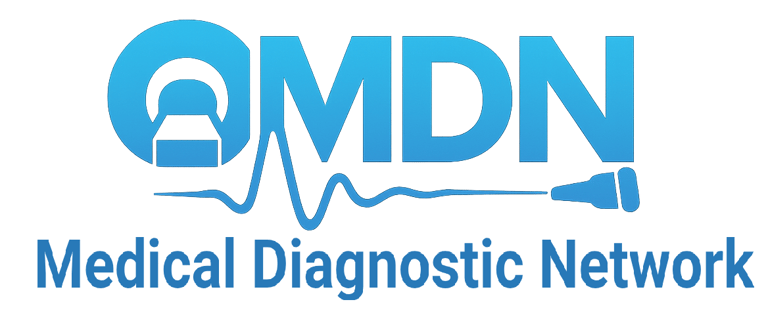Get Our Screening Package For Only $180 (Special package pricing 50% off)
Discover the Power of MRIs
Explore how MRI works, its uses in diagnostic imaging, and its advantages. Learn about preventive health screenings for various diseases, including carotid artery disease and cerebral aneurysm. Discover the benefits of this non-invasive technology for real-time imaging and therapeutic applications in modern healthcare.
Medical Diagnostic Network
8/8/20242 min read
MRI
Magnetic Resonance Imaging (MRI) is a non-invasive medical imaging technique used to produce detailed images of the internal structures of the body. MRI uses powerful magnets, radio waves, and a computer to create these images.
How MRI Works:
Magnetic Field: The patient lies inside a large cylindrical magnet. The strong magnetic field aligns the hydrogen atoms in the body.
Radio Waves: Short bursts of radio waves are sent to the body, temporarily disrupting the alignment of the hydrogen atoms.
Resonance: When the radio waves are turned off, the hydrogen atoms return to their original alignment. This process emits radio signals.
Image Creation: The emitted signals are detected by the MRI machine and processed by a computer to create detailed images of the body's internal structures.
Uses of MRI:
Brain and Spinal Cord: MRI is particularly useful for imaging the brain and spinal cord, diagnosing conditions such as tumors, strokes, multiple sclerosis, and spinal cord injuries.
Joints and Musculoskeletal System: MRI can provide detailed images of joints, cartilage, ligaments, and muscles, helping diagnose injuries and conditions like torn ligaments, cartilage damage, and arthritis.
Heart and Blood Vessels: MRI can assess the structure and function of the heart and blood vessels, diagnosing conditions like heart disease, aneurysms, and blockages.
Abdominal and Pelvic Organs: MRI is used to examine organs such as the liver, kidneys, pancreas, uterus, and ovaries for conditions like tumors, cysts, and infections.
Considerations:
Claustrophobia: Some patients may feel uncomfortable or claustrophobic inside the MRI machine.
Metal Implants: Patients with certain metal implants or devices may not be able to undergo an MRI due to the strong magnetic field.
Length of Procedure: MRI scans can take longer than other imaging procedures, often requiring the patient to remain still for extended periods.
MRI is a powerful and versatile imaging tool that provides valuable information for diagnosing and monitoring a wide range of medical conditions.
Brain Aneurysm Screening
Family History: Individuals with a family history of brain aneurysms may undergo MRI angiography to screen for aneurysms and prevent rupture.
Unexplained Headaches: MRI can also be used for individuals with unexplained severe headaches to rule out aneurysms or other vascular abnormalities.
Liver Disease Screening
Fatty Liver Disease: MRI can screen for non-alcoholic fatty liver disease (NAFLD) and monitor liver health in individuals at risk due to obesity, diabetes, or high cholesterol.
Liver Cirrhosis: Regular MRI screening helps in the early detection of liver cirrhosis and liver cancer in individuals with chronic liver disease.
Spinal Screening
Spinal Degeneration: MRI can screen for early signs of spinal degeneration, such as herniated discs or spinal stenosis, especially in individuals with chronic back pain or a family history of spinal disorders.
Whole-Body MRI
Comprehensive Health Check: Whole-body MRI is offered by some healthcare providers as part of an extensive health check-up. It screens for abnormalities in various organs and tissues, such as the brain, lungs, liver, kidneys, and joints.
Advantages of MRI for Preventive Screenings:
Non-invasive: MRI does not require incisions or injections.
No Ionizing Radiation: Unlike CT scans or X-rays, MRI does not use ionizing radiation, making it safer for repeated use.
High-Resolution Images: MRI provides detailed images of soft tissues, organs, and structures, aiding in the early detection of abnormalities.
Comprehensive Screening: MRI can screen multiple body areas in a single session, providing a broad overview of an individual’s health.
Using MRI for preventive screenings allows for early detection and intervention, potentially reducing the risk of developing serious health conditions and improving overall health outcomes.
Follow us!
Care
MDNManagementLLC© 2025. All rights reserved.
Information
Quick Links
FAX: (213) 996 - 9171
